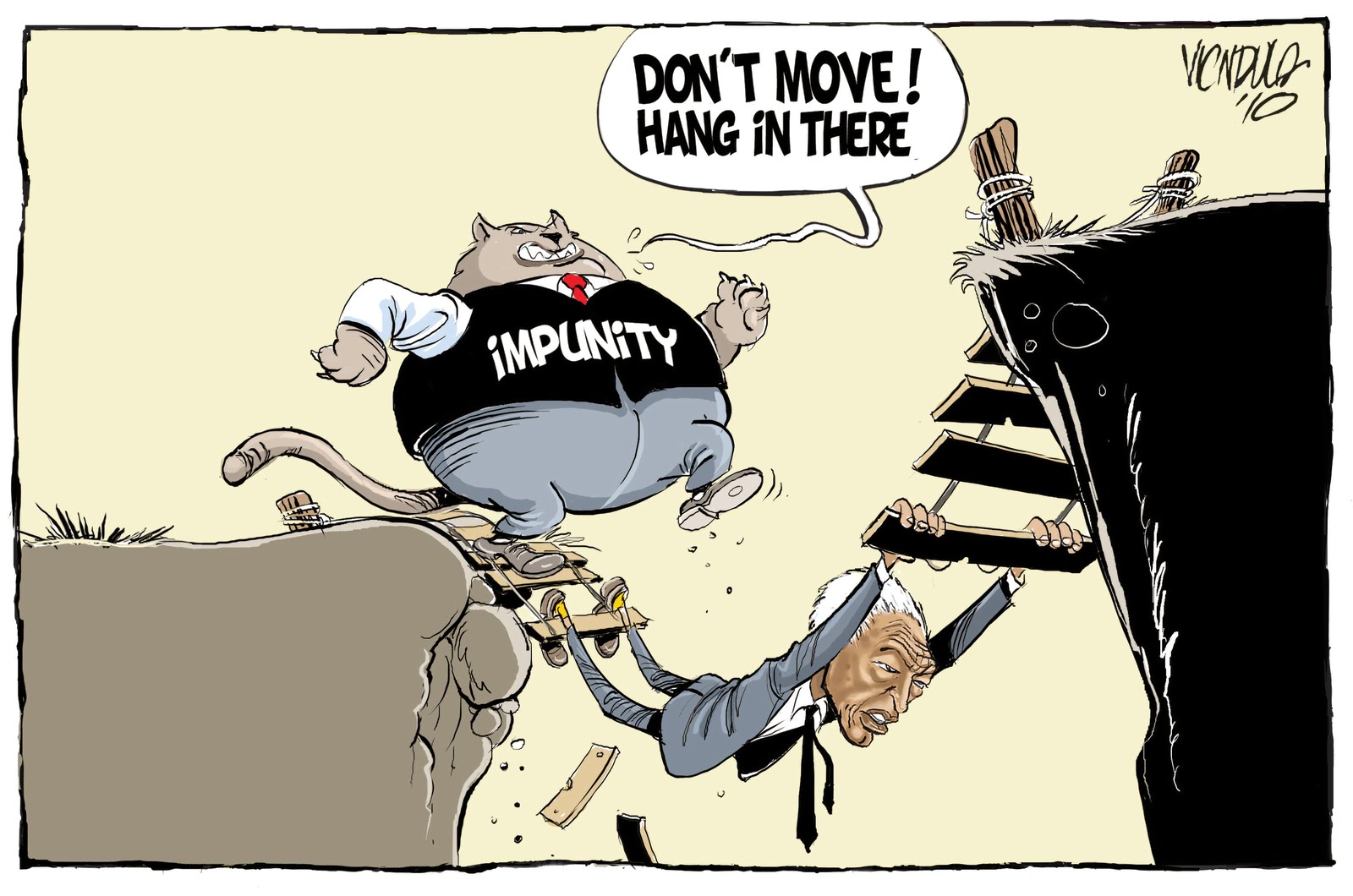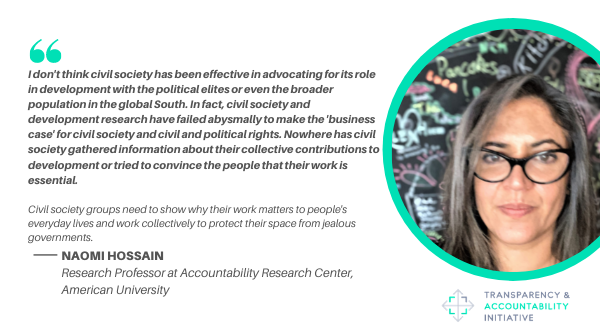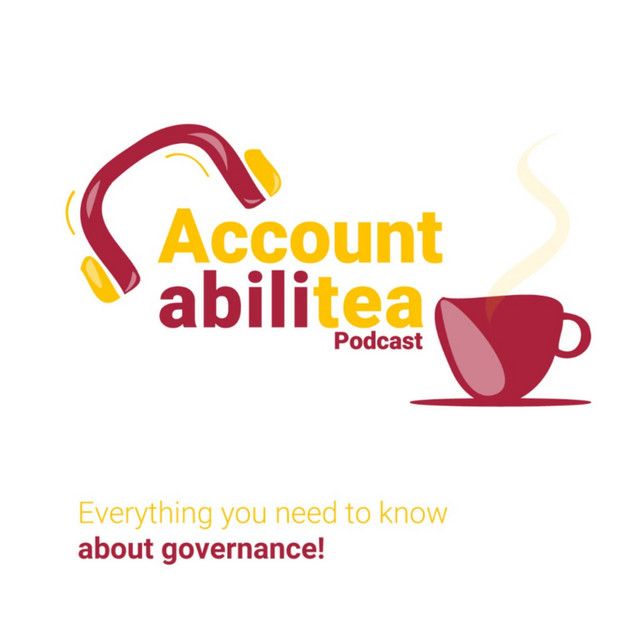Highlights
- Toward 2X accountability
- Debt dealings
- Under the microscope
- Tests of impunity
- Regulatory catchup
- Priors matter
- Money and stories
- TAI Spotlight: Who writes the rules?
Toward 2X accountability

Photo Source: Healthy leaders
It’s past time to overhaul systems that hold women back. That was the overriding message from the Generation Equality Forum this past weekend backed by a flood of donor commitments. This includes $2.1billion to go to women’s causes over five years from the Gates Foundation and pledges from TAI members – Ford Foundation and the Open Society Foundations – of $520million to advance gender equality.
Transparency, participation, and accountability can help meet those ambitions, not least through helping track progress. To that end, Equal Measures 2030 launched an online calculator to help you explore the trajectory of five key gender equality issues in your country and whether equality will be achieved in your lifetime. For its part, Equileap’s global gender equality report focuses on the corporate sector, where France, Spain, Sweden, and the U.K. are among the better performers.
Yet, the pandemic is halting if not reversing progress for many women. Staying on the corporate side, Aleksandra Wisniewska reports that only a quarter of the U.K. companies normally eligible to report their gender pay gap data did so in time for this year’s deadline — raising concerns that a continued hiatus on enforcement is delaying progress in closing the gap. Women have been most hit by job losses (as research shows for Ethiopia, Malawi, Nigeria, and Uganda.)
What to do? Allison Merchant and Megan O’Donnell suggest ways to leverage the open government community to accelerate meaningful action towards gender equality.
Debt dealings
The pandemic’s toll on public balance sheets is increasingly well documented. But while much of the concern on rising debt has focused on Africa, a new World Bank report details South Asia’s hidden debt. The authors recommend a reform agenda based on four interrelated principles of purpose, incentives, transparency, and accountability to mitigate risks that off-balance-sheet operations will become the source of the next financial crisis in South Asia.
To complement, a new report from Boston University, the Heinrich Böll Foundation, and the University of London lays out an ambitious proposal for concerted and comprehensive debt relief for a greener, more inclusive recovery, and commitments to greater debt transparency from participating governments.
No amount of debt relief will obviate the need to find new revenues, so encouragement for at least some finance ministries this past week when 130 countries finally agreed on broad contours of a two-pillar solution to address the tax challenges arising from the digitalization of the economy. Want a reminder on what this deal is all about? Go back to Gabriel Zucman’s helpful twitter thread. For a sampling of reactions from TAI member grantees on what it might entail in practice, read views from Alex Cobham of Tax Justice Network, Global Alliance for Tax Justice, and the International Commission for the Reform of International Corporate Taxation.
Under the microscope

The Heritage Foundation released its inaugural China Transparency Report. While acknowledging the ideological bent, it is fascinating reading on availability of information across eight different areas from energy and environment to foreign investment. It offers ratings of government transparency on each and how much can be filled in by private actors using open source data.
Staying in Asia, C4ADS research reveals economic development zones in mainland Southeast Asia have contributed to a range of illicit activities, including drug trafficking and wildlife trafficking.
Naira Hofmeister and Luiz Fernando Toledo report how China decreases the amount of land under tobacco cultivation at home and raises questions over their scaled-up investment in Brazil via a state-owned conglomerate.
Of course, Africa is also no stranger to Chinese (and U.S.) investment, so fascinating to read this interview with Joe Asunka, CEO of Afrobarometer, on perceptions of Chinese and U.S. influence across the continent.
Essential Listen: A global movement for environmental justice
Namati provides legal knowledge to communities around the world to help them defend their land, environmental, and other civil rights against abuse by commercial and political aggressors.
Tests of impunity

Image Credit: Victor Ndula via Thinkatuni
Former leaders may have felt more eyes on their backs this past week, as South Africa’s constitutional court slammed Jacob Zuma with a 15-month prison sentence for defying court orders to appear at his corruption trial, aiming to send a reminder to all that no one is above the law. It will be a test of the rule of law if he actually surrenders himself as supporters block access and threaten violence if force was used to effect the arrest.
Meanwhile, the former ruling family of Angola faced a setback as a Dutch court sided with a report calling an Isabel Dos Santos-linked energy deal an “act of corruption” following an inquiry prompted by the Luanda Leaks.
Want an illicit roundup? Nigeria’s Economic and Financial Crimes Commission accused Nigerian leaders and top government officials of conniving with private sector collaborators to perpetuate illicit financial activities and transfer funds to safe havens abroad, China Development Bank continues to be hit by a lengthening string of graft scandals involving top executives, commodity trader Gunvor is subjected to a Swiss criminal probe around potential bribery of Ecuadorian officials, and a case in the U.K. reveals it is past time for U.K. Companies House to get a mandate to verify the information it collects. Currently, abuses are rife as Cynthia O’Murchu found to her cost when a Russian business man listed her home as a corporate address. (Perhaps Companies House officials can adopt Open Ownership’s guide to best practices to implementing beneficial ownership?)
Regulatory catchup
Want some encouragement? Don’t miss Paul Massaro’s Twitter thread highlighting key moments in an exciting Anti-Kleptocracy Month.
Karel Lannoo applauds E.U. plans for a single anti-money laundering agency, but argues that it is not just new structures but new methods that are needed to detect and clamp down on losses. By point of comparison, the Financial Crimes Enforcement Network at the U.S. Treasury listed its first-ever anti-money laundering priorities.
Last week we mentioned a call for an international criminal court. This week Blair Glencorse makes a case for the creation of corruption truth commissions that uncovers the root of how graft occurs and persists. They may be one path to better understand how corrupt systems operate, the most culpable perpetrators, and how such systems can be more effectively dismantled.
Meanwhile, Tenders Guru Consortium, comprising of leading transparency organizations across Europe, highlight weaknesses in national public procurement systems, and recommend specific measures needed to protect pandemic recovery funds, while over 30 organizations join forces in the U.K. to demand corporate accountability laws requiring human rights and environment due diligence across supply chains to match steps taken in Europe.
TPA Full Disclosure: Naomi Hossain on the need for civil society to make a case for their value and role in society

Naomi Hossain is Bangladeshi-Irish, originally from London, but now based in Washington DC, where she work at the Accountability Research Center at American University doing the “most amazing job” – action-oriented research with activists and practitioners, and scholars to help them think through their strategies for holding authorities accountable and share what they are learning. We recently caught up with Naomi to discuss pushing for more transparency and accountability in sBangladesh and how we can all be part of the development process.
Priors matter
Michele Crepaz and Gizem Arikan looked at information disclosure and trust during COVID in Ireland and found that information, ‘increases political trust among individuals with higher levels of prior trust in government, while it leads to a backfiring effect among those with lower levels of prior trust’.
Guy Schleffer and Benjamin Miller explore the effects of social media on different regime types with a caution that unless strict and prompt action are taken, democracies around the world will continue suffering the weakening and radicalizing effects of social media. Offering a ray of hope, Ellen P. Goodman, Karen Kornbluh, and Eli Weiner explain how platforms and regulators can use UX (user experience) design to help defeat disinformation and increase transparency.
Jeni Tennison of Open Data Institute worries about a race to the bottom in U.K. data protection and the “reputational damage it brings, along with the loss of responsible tech firms, emerging digital industries, and international influence.”
The U.S. Government Accountability Office launches a new Accountability Framework for use of artificial intelligence in U.S. federal agencies and other entities as civic entrepreneur Frank McCourt launched Project Liberty, a new $100 million initiative to enable a more equitable technology infrastructure for the internet.
Money and stories

Image Source: Pluralsight
How can you scale the impact of cross-border giving (a question that TAI members face daily)? Michael Voss speaks with Kelsey McCarthy of the Charities Aid Foundation of America and Fred Kaynor of Schwab Charitable on the need for donors to extend their giving capacities beyond their national borders – to cater for causes that seem too far away, but actually affect all.
Kevin Starr tells funders why those groups who receive major gifts – such as the latest recipients of MacKenzie Scott unconditional funds – “still need your money.”
Melinda Tuan advises funders to commit more deeply into the kind of listening and feedback practices that advance equity and trust-based philanthropy, and Piper Anderson argues that racial equity will only be achieved if accountability is made a cultural norm within organizations.
Finally, there is much attention to building new narratives to shape a more amenable post-pandemic world. Yet that narrative building takes time, repetition, and many voices to form. Want some tips? International Service for Human Rights has published a guide on crafting and implementing a new human rights narrative.
Other stories
- The grantmaking practices we need
- Re-evaluating the consultant’s role in social change
- Can Capitalism Save the Planet? With B Team CEO Halla Tómasdóttir
- Considerations to take when reopening your nonprofit office
- Notes at the crossroads: Reflections on CEP’s “Persevering through crisis: The state of nonprofits” survey
TAI Spotlight: Who writes the rules?
Who writes the rules? | Luminate
Luminate joined the #WhoWritesTheRules campaign in calling on the European Parliament and Commission to publicly outline the measures it will adopt to ensure the Digital Services Act mitigates and ends harms faced by radicalized and marginalized women online.
In support of feminist political mobilization and leadership | Open Society Foundations
The foundations will invest more than $100 million over the next five years to strengthen a range of feminist-led movements and increase their leadership across a broad range of sectors from politics, the private sector to civil society and government.
Grantmaking strategies to help U.S. Democracy survive and flourish | Hewlett Foundation
The foundation’s U.S. Democracy Program announced two new strategies to support trustworthy elections and strengthen our national governing institutions.
Stephanie Bell-Rose elected to MacArthur’s Board | MacArthur Foundation
Stephanie Bell-Rose, a corporate, philanthropy, and governance professional, has been elected to serve on the Foundation’s Board of Directors. Stephanie brings deep insights and experience in philanthropy and finance.
Phasing out coal power ahead of COP26 | UK FCDO
Ahead of COP26 in November, the UK COP26 Presidency urges all countries to commit to phasing out coal power for the good of both people and planet.
Job Listings
- Board of Directors at Global Integrity – July 16, 2021
- Job postings at Hewlett Foundation – Ongoing
- Job postings at MacArthur Foundation – Ongoing
- Job postings at Open Society Foundations – Ongoing
- Job postings at Luminate – Ongoing
- Job postings at Ford Foundation– Ongoing
- Job postings at FCDO – Ongoing
Calls/Opportunities
- FCDO call for 2021-2022 project proposals in Liberia – July 13, 2021
- FCDO call for bids for provision of water testing services in Kenya – July 13, 2021
- West Africa Civil Society Institute (WACSI) call for papers and articles – Open year-round
- USAID’s Development Innovation Ventures (DIV) grant funding– Ongoing
- Call for research proposals Tax and civil society – No Deadline
- Free Digital Security Training– Ongoing
- Call for proposals: Informality, tax, and the state– Proposals accepted on a rolling basis
Calendar
- Tax Justice Network 2021 Conference – July 6-9, 2021
- World Justice Challenge 2021: Advancing the Rule of Law in a Time of Crisis – July 14, 2021 (11:00 AM -12:15 PM EDT)
- Global Investigative Journalism conference – November 3-5, 2021
- National Tax Association conference – November 18-20, 2021
Want to stay updated on happenings around the TPA sector, sign up for our newsletter here
